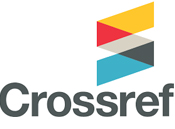The Effectiveness of the Self-Regulated Learning Model to Improving Student Academic Ability in Mathematics Class
Abstract
This study describes the effectiveness of the Self-Regulated Learning (SRL) model to improve students' academic abilities in mathematics classes. Many studies suggest that the ability of Indonesian students to solve problems is still relatively low. Students are not allowed or encouraged to optimize their potential, develop reasoning and creativity, thereby causing the knowledge provided to be less meaningful. The success of this study was determined through three effectiveness criteria. This research design used by giving assignments to students. Assignments were completed using strategies chosen by students. The task is reflected and then evaluated. This process is carried out in the mathematics class. The class chosen is a 7th grade mathematics class with statistics and Opportunities. The three criteria are (1) the average mastery of teaching materials students meet the KKM, (2) student activities according to the syntax of the SRL Model, (3) students' responses to the learning of the SRL Model are Positive. The results of the application of the SRL model that has been done. First, students are able to complete the category very well. This is evidenced by the achievement of the average score of Mastery of Teaching Materials above the KKM score. Second, student activities are in the active category. This is indicated by the average score of the observers during the four meetings included in the active category in learning. Third, students' responses to learning have been positive.






